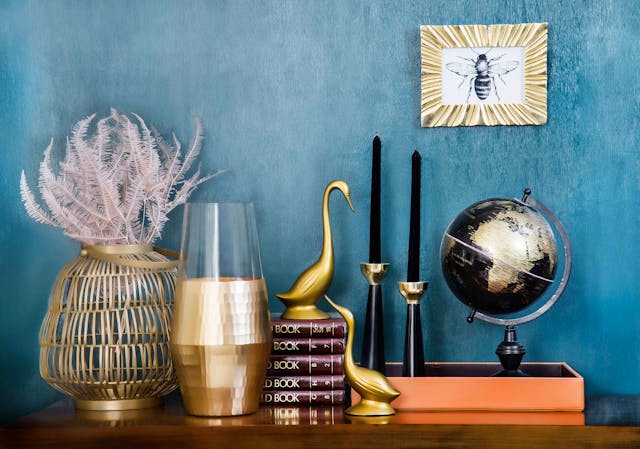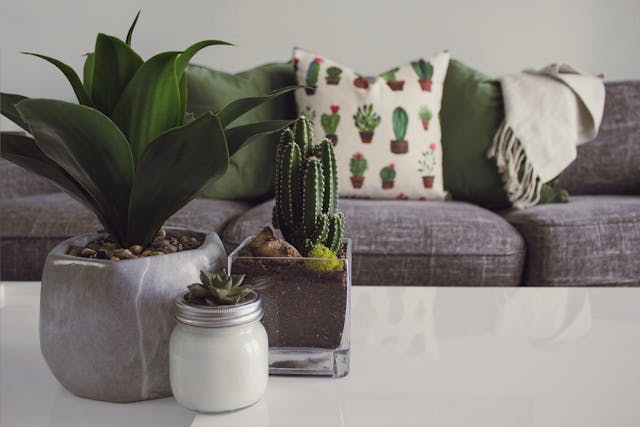As awareness of environmental issues continues to grow, many people are seeking ways to live more sustainably. One impactful area to focus on is home decor. Sustainable home decor not only helps reduce your environmental footprint but also creates a healthier living space. Here’s how you can make eco-friendly choices for a greener lifestyle.
Understanding Sustainable Home Decor
Sustainable home decor involves choosing products and materials that are environmentally friendly, ethically sourced, and designed to minimize waste. This includes using renewable resources, reducing energy consumption, and opting for items that have a minimal impact on the environment.
Sustainable Materials
Choosing materials that are renewable and biodegradable is a cornerstone of sustainable home decor.
Bamboo
Bamboo is a fast-growing, renewable resource that can be used for flooring, furniture, and even textiles. It is durable, lightweight, and has a natural aesthetic that fits well with various decor styles.
Reclaimed Wood
Using reclaimed wood is an excellent way to add character to your home while reducing the demand for new timber. This wood is sourced from old buildings, barns, and factories, giving it a unique, weathered appearance.
Organic Textiles
Opt for textiles made from organic cotton, hemp, or linen. These materials are grown without harmful pesticides and chemicals, making them healthier for both the environment and your home. Organic textiles are available in a range of products, including bedding, curtains, and upholstery.
Energy-Efficient Lighting
Lighting is a crucial aspect of home decor, and making eco-friendly choices can significantly impact your energy consumption.
LED Bulbs
LED bulbs are far more energy-efficient than traditional incandescent bulbs. They use up to 75% less energy and last up to 25 times longer. LED lighting is available in various colors and styles, allowing you to create the perfect ambiance while saving energy.
Solar-Powered Lights
For outdoor lighting, consider solar-powered options. These lights charge during the day and illuminate your garden or patio at night without using electricity. They are easy to install and come in various designs, from string lights to pathway markers.
Eco-Friendly Paints
Traditional paints often contain volatile organic compounds (VOCs) that can harm indoor air quality. Eco-friendly paints are made with natural ingredients and have low or zero VOCs.
Natural Paints
Natural paints are made from ingredients like clay, lime, and plant oils. They are biodegradable and free from harmful chemicals, making them a safer choice for your home.
Low-VOC Paints
If natural paints are not available, look for low-VOC options. These paints emit fewer pollutants, helping to maintain better indoor air quality while still providing a wide range of colors and finishes.
Upcycling and DIY Projects
Upcycling involves transforming old or discarded items into something new and useful. This approach not only reduces waste but also adds a personal touch to your home decor.

Furniture Makeovers
Give old furniture a new lease on life with a fresh coat of paint or new upholstery. This not only saves money but also prevents perfectly good pieces from ending up in a landfill.
Creative Repurposing
Get creative with repurposing items. For example, old wooden crates can be turned into stylish shelves, and glass jars can be used as storage containers or vases. The possibilities are endless, and each piece you create adds unique charm to your home.
Supporting Ethical Brands
When shopping for new decor items, choose brands that prioritize sustainability and ethical practices.
Fair Trade Products
Fair trade products ensure that artisans and workers are paid fair wages and work in safe conditions. Look for fair trade certifications when purchasing items like rugs, textiles, and home accessories.
Eco-Friendly Brands
Many brands now offer eco-friendly products made from sustainable materials. Research and support companies that are committed to reducing their environmental impact through responsible sourcing and manufacturing practices.
Indoor Plants for a Greener Home
Adding indoor plants to your decor is an easy and effective way to enhance your living space while promoting a greener lifestyle. Plants improve air quality by absorbing pollutants and releasing oxygen.
Low-Maintenance Plants
If you’re new to gardening, start with low-maintenance plants like succulents, snake plants, or pothos. These plants are easy to care for and thrive in various indoor conditions.
Vertical Gardens
For small spaces, consider vertical gardens. These can be created using wall-mounted planters or hanging pots, allowing you to enjoy the benefits of indoor plants without taking up valuable floor space.
Conclusion
Transforming your home decor with sustainable choices is a rewarding way to contribute to a greener lifestyle. By choosing eco-friendly materials, energy-efficient lighting, and supporting ethical brands, you can create a beautiful, healthy, and environmentally responsible living space. Upcycling and incorporating indoor plants further enhance your home’s sustainability while adding a unique and personal touch. Embrace these eco-friendly choices and enjoy the benefits of a greener, more mindful way of living.
